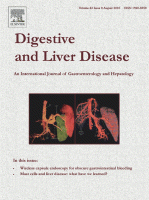
Celiac.com 01/17/2019 - Kids with celiac disease, especially those who are recently diagnosed, are not getting proper follow-up care, according to the latest report. A team of researchers recently set out to assess the follow-up care of children with biopsy-confirmed celiac disease over a minimum of three years following diagnosis. Their results appear in Clinical Gastroenterology and Hepatology. The research team included Bradley A. Blansky MS, Zackary J. Hintze BA, Eaman Alhassan MD, Alan M. Leichtner MD MCHPE, Dascha C.Weir MD, and Jocelyn A. Silvester MD, PhD.
They are variously affiliated with the Harvard Celiac Disease Program, Boston, MA; the Boston Children’s Hospital, Harvard Medical School, Boston, MA; Boston University, Boston, MA; the Department of Medicine, West Virginia University, Morgantown, WV; the Beth Israel Deaconess Medical Center, Harvard Medical School, Boston, MA; the Rady College of Medicine, Faculty of Health Sciences, University of Manitoba, Winnipeg, MB.
Celiac.com Sponsor (A12):
For their study, the research team used a database to randomly select children with biopsy-confirmed celiac disease at Boston Children's Hospital from January 1, 2010 to December 31, 2014. The team followed about 50 cases per year.
The researchers reviewed patient medical records for a minimum of 3 years of observation following diagnosis. Any child not receiving a gastrointestinal (GI) visit for 18 months was marked lost to follow-up.
The 241 eligible subjects averaged about 10 years old at diagnosis, and 63% were female. Nearly all of the children reported symptoms, with 24% complaining of abdominal pain, and 14% of experiencing constipation. Just 2% of the children showed no symptoms at all.
On the upside, more than 80% of the children saw a dietitian, with just under one-in-three kids attending both a dietitian-led class and an individual consultation.
But the records show that 25% of the kids were lost to follow-up within a year of diagnosis, and that nearly 10% received no GI visits at all after their diagnostic biopsy.
Read more at: Clinical Gastroenterology and Hepatology (PAYWALL)







Recommended Comments
Create an account or sign in to comment
You need to be a member in order to leave a comment
Create an account
Sign up for a new account in our community. It's easy!
Register a new accountSign in
Already have an account? Sign in here.
Sign In Now